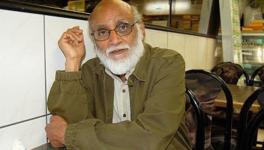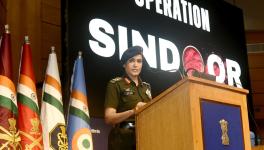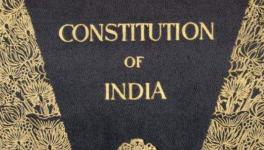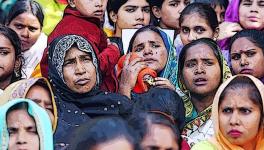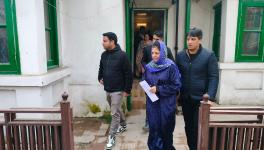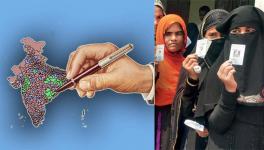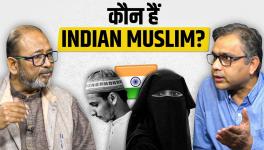Another Thumbs Down for Televangelist Zakir Naik
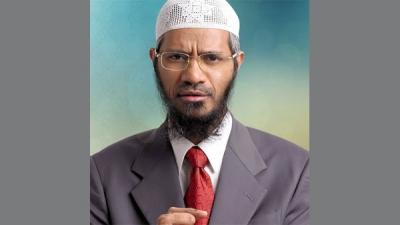
Image Courtesy: oneIndia
The controversial Islamic televangelist Dr Zakir Naik has this uncanny habit of hogging the limelight. He is divisive to the core, knows it well, and leaves no stone unturned to keep his image intact.
Recently, he claimed that it is perfectly alright for Hindus to build temples and offer prayers in them, but the funding of a Hindu temple by a Muslim government is “un-Islamic”. He said this in the context of the proposed temple that is being built in Islamabad, Pakistan. He said the Pakistan government should not help finance a non-Muslim site of worship.
This created a huge uproar all over the world and Muslim scholars in India, Pakistan, and elsewhere condemned Naik, whose “Peace TV” channel has created for him a large number of admirers in the Indian subcontinent, much of the Islamic world, even in Europe and the United States.
In response, Naik, the son of a renowned psychiatrist originally from Dongri, Mumbai, made yet another controversial statement: that Indian Muslims from the north Indian states of Uttar Pradesh and Bihar should migrate to Kerala. The southern state was peaceful and non-communal state, he said, where people of all religions live harmoniously without friction. Since, he said, “This (BJP-led) government does not have much hold in the state of Kerala... So one of the best options if you want to do hijra to another state, I would say, is Kerala.” He also said Muslims must form an “exclusively” Muslim political party, which should join hands with outfits that are not “fascist and communal”. He advised an alliance with Dalit parties, arguing that the Dalits are not Hindus.
Naik’s delusional narratives and suggestions, just like his divisive ideology, have failed to find favour with the majority of Indian Muslims. Most Indian Muslim scholars, Shia, Barelwi and Deobandi, have serious differences with the brand of religion he preaches. They also have serious misgivings about him over the fact that he freely issues fatwa, or religious pronouncements, despite not being an Aalim or scholar of Islam.
Prof. Imtiaz Ahmad, a noted scholar on political sociology, says Naik does not have as big a fan-following as is often made out. “Having a following on social media is a poor basis to assess a person’s [real-world] relevance or significance. Naik’s followers are lower middle class people; a mobile lot who easily don other robes as they move up or down [social ladders].”
As for his advise that Muslims migrate to Kerala, Ahmad says, it is simply laughable. Uttar Pradesh and Bihar are huge landlocked states, where more than five crore Muslims live. It is unthinkable they will even think of shifting to a coastal region where they would not know each other’s language nor share a common culture. “People are not dumb. They will not change residences simply because Naik asks them to. Such decisions are based on keen calculations of interests. The current situation may be bad, but it is not so threatening as to warrant migration,” he says.
The suggestion, according to Ishtiyaque Danish, a professor of Islamic Studies at Jamia Hamdard, a noted higher education institution, is “delusional”. “While things are a bit difficult for Muslims at the moment, it is not as bad to make people go wild with fear. Such misleading suggestions are detrimental for the overall good of the community. We are living in a secular, democratic country and despite efforts—serious efforts—to change this, ours is still a democratic country and there is every chance that things may take the right turn in coming days.” “His words,” Danish adds, “will not have any impact on Muslims in the country. Not many will give it second thought, let alone packing up and migrating several thousand kilometres away.”
To scholars and preachers alike, none of Naik’s antics should be called “fatwa” either. Some time ago, the largest seminary in Darul Uloom Deoband had called his knowledge of religion shallow and advised its followers to ignore them. The Deoband fatwa said that the televangelist’s knowledge is “not deep” and therefore “unreliable”.
Mufti Ibrahim Desai, an Islamic scholar associated with Deoband says, “Naik is known for discussions on comparative religions. He is not a qualified Aalim of deen (faith). His comments on fiqh (teachings of the Quran) have no merit. If it is true that he condemned the fiqh of the Imams, that itself is clear indication of his lack of fiqh and understanding of Shariah (Islamic law). We have come across a fatwa from Darul Ifta Jamia Binnoria regarding Zakir Naik not being a certified Aalim of Deen. He should consult with Ulama in his endeavour of propagating deen.”
Naik has antagonised other schools of thought including the Shias and Barelwis. He has targeted Shia Islam on many occasions, so it was a matter of time before they opened a front against the man whose TV channel has made him a worldwide phenomenon. Some time ago, the renowned Shia cleric Maulana Kalbe Jawad Naqvi demanded a blanket ban on him and his activities in India. “Zakir Naik is spreading terrorism…Naik is a part of the Saudi Arabia-funded Wahhabi terror network, which creates scholars and clerics who in turn brainwash young Muslims,” Jawad said.
Waris Mazhari, who is associated with the Madrasa Discourses project at the Notre Dame University says people like Naik want to pit one section of the population against the other to achieve their nefarious designs. “His suggestion to migrate to Kerala and have exclusive political party is a sign of emotional bankruptcy,” says Mazhari.
The idea of hijrat is not new to Islam. Exactly a hundred years ago, in 1920, an ill-thought-out hijrat movement saw tens of thousands of people from Punjab, Sindh and Rajasthan sell their homes and lands for pittances and head to Afghanistan, where they soon realised their folly. But it was too late. Many of them, were driven back from Afghanistan and died en route, many others perished as they made their way back.
The American historian of South Asia, Gail Minault, says in his 1982 book, The Khilafat Movement: Religious Symbolism and Political Mobilization in India, published by Columbia University Press, “The most eloquent example of the influence of religious figures over the Muslim populace... was the Hijrat Movement in the summer of 1920. As a method of protest against British policy towards the Khilafat, hijrat, in this case, migration to Afghanistan, had been discussed at various Khilafat meetings, but was generally disapproved on the grounds that such action could only weaken the Muslim cause in India... This idea was given added weight by fatwa in favour of the migration issued by Maulanas Abdul Bari and Abul Kalam Azad. Their pronouncements were qualified, urging hijrat as an alternative, but not a replacement, for non-cooperation. Yet thousands took their advice, sold their property, and started for the Afghan border in the blazing heat of July and August.”
This turned out to be an utter disaster and Naik, sitting pretty in his scenic Putrajaya, Malaysia, home, is proposing will be a bigger disaster if some people actually take the plunge. It is quite apparent that he is least concerned about the good of the community and revels in controversies that his comments create every now and then.
The author is a writer and columnist. The views are personal.
Get the latest reports & analysis with people's perspective on Protests, movements & deep analytical videos, discussions of the current affairs in your Telegram app. Subscribe to NewsClick's Telegram channel & get Real-Time updates on stories, as they get published on our website.









